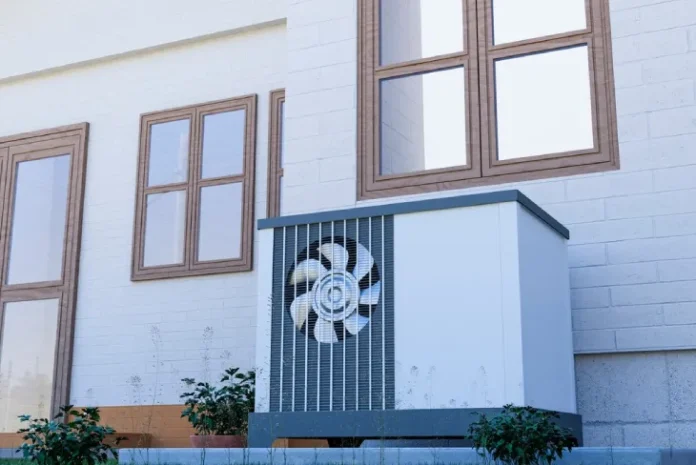As the world heats up and as effective heating and energy solutions are sought then the Hybrid Heating Systems are slowly becoming the option of choice due to energy efficiency, costs, and innovation.
As such, by identifying the important hybrid heating systems features B2B professionals serving the HVAC and construction industries can provide enhanced services and solutions for residential and commercial construction. Hybrid systems may use conventional fuels like gas or oil and at the same time integrate some modern technology like the electric heat pump for houses. The usage of this will help in heating effectively and at the same time help in cutting short greenhouse gasses that are emitted.
In this article, the authors focus on the criteria which B2B providers should consider while choosing a hybrid heating solution.
Understanding Hybrid Heating Systems
A dual-source system of heating is an integrated installation of two forms of heating for instance a heat pump and a furnace. In moderate conditions, the heat pump is used to provide the necessary heat and in the worst condition, it is backed up with the furnace. This transition results in setting the building and comfort at its most efficient energy level.
Hybrid heating systems are of particular interest to B2B businesses targeting clients operating in the real estate segment, such as house or commercial construction. Since energy regulation is tightening the standards of the energy produced and consumption, consumers are on the lookout for eco-friendly products and services, and having the capability to provide versatile heating solutions from the business as innovative and proactive to the current market. These systems combine heat pump technology with backup heat sources to allow flexibility, energy efficiency, and lower emissions.
Cost Considerations
The basis for choosing the type of system that can be hybrid in this case is certainly cost. A hybrid system calls for an initial investment, which is usually higher than that of a conventional system. However, it is possible to weigh effectiveness by laying long-term perspectives in terms of the system’s energy-saving measures. Consequently, the use of an electric heat pump in moderate temperatures and the conversion of the system to a fuel-burning furnace in freezing temperatures can save considerable energy. By approaching energy redistribution in this way, there are cost savings in operating outgoings, which makes blended systems attractive to client-conscious consumers about energy usage.
In B2B transactions especially, it’s important to give clients reasons why they must pay the prices set by the enterprise. Incentives, rebates, or long-term energy savings that makeup part of the total cost of the system may considerably reduce the first cost of the solar system. Potential broadcasters should cooperate with manufacturers willing to offer attractive financing schemes or rebates — this will make the cost of installing the hybrid systems less of a problem for prospective customers.
Climate Suitability
About the use of an efficient hybrid heating system, climate has been found to have a very central impact. In temperate climate zones, the electrical heat pump will cover most of the heating demand, and therefore auxiliary fuels are rarely required. However, in cold climatic regions, the furnace backup is expected to operate frequently thus reducing the efficiency and cost-effectiveness of the system.
The decision of the B2B providers to choose a hybrid system requires them to understand the climatic characteristics of a specific market. The use of electric heat pumps exciting in temperatures higher than freezing can greatly reduce their efficiency in very low temperatures. In such cases, it is possible to recommend that customers install hybrid systems with advanced cold-climate heat pumps to guarantee value for their money. The specialized heat pumps, unlike the common heat pumps, are specially designed to operate well even in low temperatures and, therefore, suitable for a broader climate range.
Energy Efficiency and Environment
The desire to have an efficient system and save energy is what has propelled the need for a hybrid heating system. The system that integrates an electric heat pump with a traditional furnace is shown to be viable since it would be difficult for a single source system to compete with this degree of efficiency. If the external conditions are mild, then the system utilizes the heat pump, which is more efficient and has fewer carbon emissions concentrations. In cold weather, the system converts to a standard furnace, keeping the inside environment steady and no cluttering of the heat pump.
Energy efficiency is a valuable bonus in B2B sales because clients are aware of the problematic consequences of their energy supply choices. Seventy-seven percent said that by offering hybrid systems that lower greenhouse gas emissions, organizations can meet sustainability objectives as well as governmental requirements, frequently seen in LEED and ENERGY STAR programs. Several hybrid systems are labeled with energy ratings that attest to their performance; therefore, B2B firms can explain to customers seeking eco-friendly solutions the environmental impact of the system.
System Compatibility and Installation
Therefore hybrid systems should be able to naturally blend with prevailing structures to operate efficiently. This becomes especially challenging when fitting a building with existing mechanical ventilation, heating, and cooling systems, thermostats, and electrical wiring for both retrofit and new construction. When assessing the setup needs for the hybrid system, expensive upgrades may be avoidable, and efficiency might be prone to reduction.
For B2B companies, which often deal with somewhat technical and obscure subjects such as software compatibility, this is especially important. Some of the hybrid systems are compatible with specific fuels like natural gas, or oil and some need many modifications to be made. Before coming up with the need for a hybrid heating solution, Always consider testing conditions and installation requisites since they are determined by cost and time of construction. Selecting a hybrid system from manufacturers that offer numerous installation styles can minimize the project difficulty and guarantee a smoother connection.
Manufacturer Support and Reliability
Choosing a good manufacturer with good backing and warranty is crucial for the B2B industry. Hybrid heating systems are elaborate, integrating sophisticated technology and conventional heating solutions. Receiving assurance from the manufacturer that he is going to offer sound warranties, adequate customer support, and part replacement services is crucial to enhancing the satisfaction levels of the clients as well as avoiding high downtime.
The viability of hybrid systems is also boosted among clients by working with manufacturers that are reputable in the plant. For example, when selecting electric heat pumps for house applications, customers will prefer the products of manufacturers who have records in quality and efficiency. B2B companies should work with manufacturers who also provide information, support, and tools to educate contractors and technicians about hybrid systems and provide continuing follow-up in the form of documentation and customer service.
To the B2B enterprises operating within the HVAC and construction industries, hybrid heating systems offer the possibility to propose a versatile, environmentally-friendly heating solution that is already in line with the market trends. Some of the most important factors that have to be taken into account include cost issues, climatic conditions, energy effectivity, compatibility with installations, and manufacturers.



